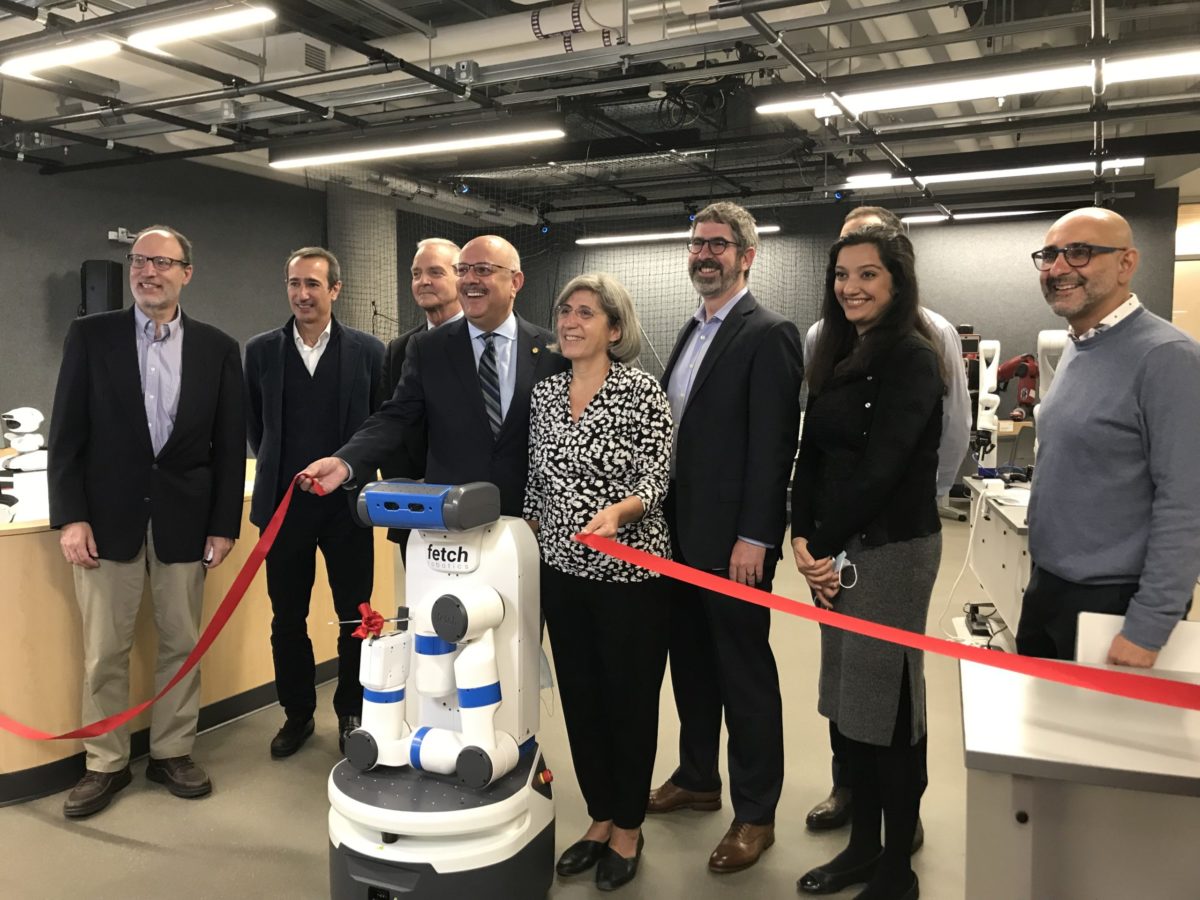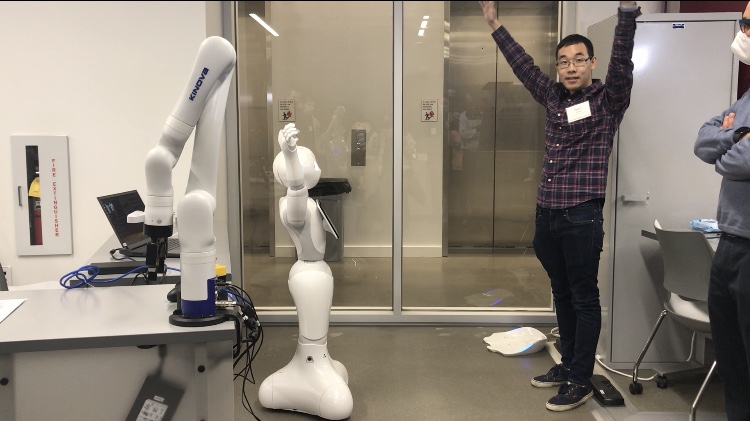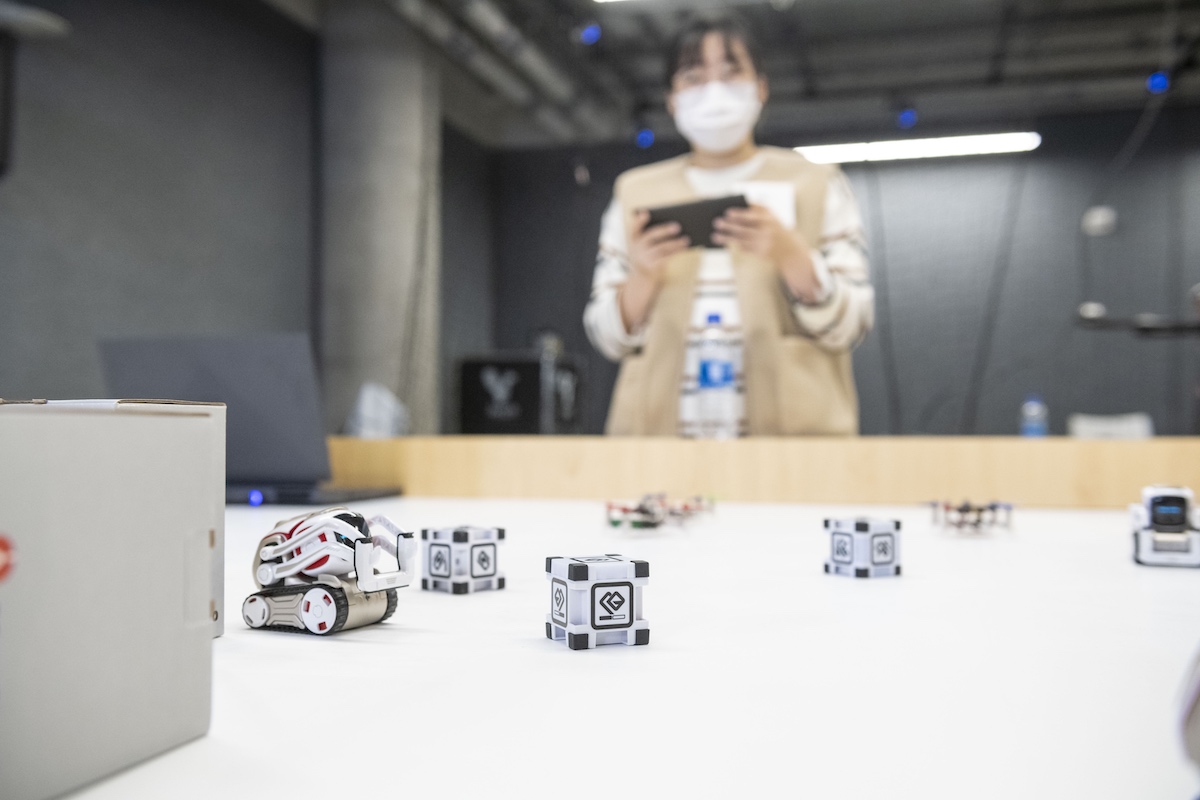You know the future is here when autonomous robots are cutting grand opening ribbons.
Carnegie Mellon University’s new JPMorgan Chase & Co. AI Maker Space, which hosted an opening ceremony on Wednesday morning, will give students across all schools at CMU the chance to experiment with artificial intelligence projects involving robotics, machine learning, computer vision and the like. The new 1,900-square-foot space is located on the first floor of the Tepper Building, which opened in 2018 and houses the university’s business school and Swartz Center for Entrepreneurship.
The space is large enough to accommodate around 20 students working simultaneously, and university reps at the opening said they expect hundreds of students to participate throughout the semester in its open collaboration areas. While not yet open to everyone for use, the new space’s employees are hoping to fully launch it in mid-January for the start of the spring semester.
The concept of an AI makerspace is relatively new, and contrasts with the usual definition of makerspaces used by engineering students. Rather than focusing on building hardware, this space encourages students to develop and test software.
There’s emphasis on autonomous robot development with a small robot playground, drone zone and other areas for testing larger bots. But there’s also a designated space for machine learning projects on computers and what the university reps called a “SmartHome Area” — a place where students can incorporate artificial intelligence into home appliances as a way to innovate living spaces. Reid Simmons, the director of the AI Maker Space and the B.S. in AI program at the university, added that the space will likely be used for the testing and development of virtual reality tech as well.
“It’s called an AI Maker Space, because we believe that all of this technology and basically, anything that we interact with, is in the future going to be AI-enabled,” Simmons said. “And so what we’re trying to do is create the infrastructure so that students can come and experiment with things that will push the boundaries of AI.”
Simmons believes this software-focused makerspace is the first of its kind on a college campus. While CMU already has opportunities for research in robotics and artificial intelligence through academic labs and other resources, this makerspace gives anyone the chance to get involved with innovation for both.

The new space is financially supported by JPMorgan Chase, which already has a partnership with the university through its Ph.D. fellowship program. But behind the broader push for the bank’s support of artificial intelligence innovation at CMU is Manuela Veloso, the head of AI research at JPMorgan Chase and a former professor at the university for nearly 30 years. After moving into the corporate world, Veloso pushed for the bank to invest in academia as a way to advance the company’s own investments in artificial intelligence. She, along with other representatives from the company who were present at the space’s opening, emphasized that the banking industry’s reliance on data means artificial intelligence applications will only become more mainstream in the field over the next decade.
JPMorgan Chase, along with other companies in the area like those in the autonomous vehicle industry, will provide both real and synthetic open source data sets for students to use as they train their software and artificial intelligence applications. At the makerspace’s opening event, some students involved in robotics demonstrated early iterations of what this could look like: One student demonstrated a small robot with face recognition technology that could react to those it is and isn’t familiar with, while another demonstrated a larger human-like robot that could follow voice commands and mimic human arm motions.

Importantly, the opening of this new space once again puts CMU at a place where it can push the boundaries of artificial intelligence across academic disciplines and commercial potential. While students may have already been doing some projects on their own or in labs, this space will make it easier and more convenient for those collaborations to occur.
“We can incorporate [the resources] in one central location for the students that facilitates what they really want to do,” Simmons said.
Though Simmons said the university didn’t build the new makerspace with specific intentions for commercial product testing from student-founded startups, he sees its overlap with the Tepper School of Business as being a chance for those kinds of interactions to occur. But the real goal of the space, he added, is to normalize interdisciplinary use of AI — and “to acknowledge to the campus community that this space is not just for computer science or engineering, that it’s for everybody.”







